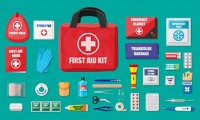-
Infancy ‘Obesity’ no Predictor for Obesity in Childhood
- Source: MDLinx
- 1,080
- August 10, 2018
-
Top 4 Best Nursing Home Beds in 2018
- Source: Ddu
- 1,550
- August 9, 2018
-
ICU Ventilators and Syringe Pumps
- Source: Ddu
- 1,536
- August 9, 2018
-
Effectiveness of HPV Vaccination in Women Under 20
- Source: ScienceDaily
- 1,053
- August 9, 2018
-
Cleaning & Greening can Reduce Depression
- Source: Reuters
- 630
- August 9, 2018
-
Suven Life Sciences Rises 1% on Patent from Mexico and New Zealand
- Source: MoneyControl
- 941
- August 9, 2018
-
Cross-linked Polyethylene Hip Implants Lower Chances of Revision Surgery
- Source: The Verdict
- 1,008
- August 9, 2018
-
One Boy’s Struggle with Epilepsy Leads to First Marijuana-Derived Medicine
- Source: NPR
- 958
- August 9, 2018
-
New MS Criteria Might Show Higher False Positives
- Source: MDEdge
- 920
- August 9, 2018
your submission has already been received.
OK
Subscribe
Please enter a valid Email address!
Submit
The most relevant industry news & insight will be sent to you every two weeks.













